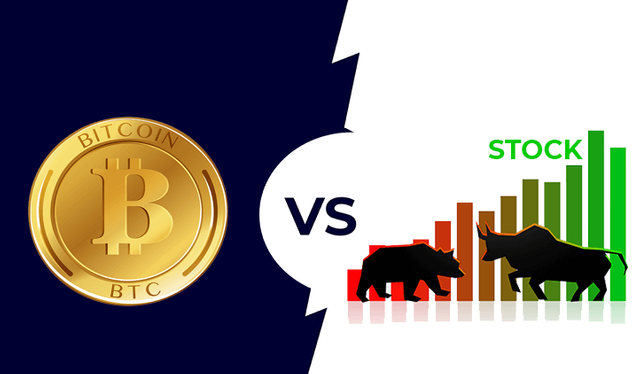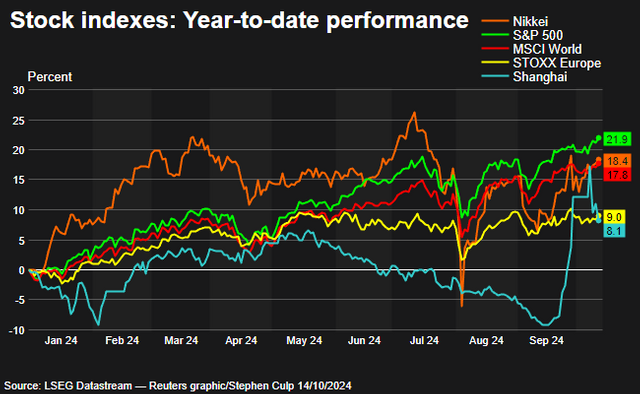Crypto vs. Stocks: Which Should You Invest In?

One of the hottest debates in finance for the last couple of years now has gained momentum between investing in traditional stocks or diving into the fast-evolving world of cryptocurrencies. Stocks are well-tried and tested, representing ownership in well-established companies, while crypto is the new player that promises high returns but with equally high risks. Which one is it better to invest in?
This blog will outline the key differences, both pros and each respective con, and for what kind of investors either might fit. Later, we come to more delicate details.
Understanding the Basics
Stocks are basically a portion of the ownership in an entity and carry ownership rights with them. When you buy stock in a company, you literally become part owner of that company and, therefore, have some claim on their assets and their profits. Stocks are centuries old and are usually controlled and monitored by government bodies, such as the SEC in the United States.
Cryptocurrencies are digital assets using blockchain to secure and verify a transaction. Unlike stocks, they are not pegged to the profit of companies or physical assets but highly supply and demand-driven and especially speculation-driven in their valuation. Bitcoin and Ethereum, among many, work independently of governments, making the market open and volatile.
Now, let's take a closer look at the advantages that one of these options has over the other.
Advantages of Stock Investment

- Stable Investment with Lower Risk
Stocks have a much longer history compared to cryptocurrencies. They are generally perceived as much less volatile than crypto, since they are backed by company earnings and real assets. The stocks of more established companies like Apple, Microsoft, and Coca-Cola have relatively stable positions and are good options for investors seeking steady, long-term growth.
- Dividends
Many stocks also pay dividends-periodic distributions of a portion of the company's profits. This provides an income stream that is generally regular, even if the underlying stock fluctuates in price. This is something that is practically never seen with cryptocurrencies, which by their very nature don't pay dividends or other distributions.
- Regulation and Security
The stock market is greatly regulated: In the United States, for example, the SEC works to prevent fraud and to protect investors. This makes stocks a far safer option for the risk-averse investor, for whom there's less of a chance for scams and malicious actors.
Disadvantages of Investing in Stocks
- Slower Growth
With stocks, growth is often stable, but it's considerably slower compared to the explosive gains in crypto. Those looking to get rich overnight will mostly not find that in traditional stocks.
.jpg)
- Market Hours
The stock trades are only made during specific market hours, from 9:30 AM through 4 PM in the United States. That would mean you can't trade stocks 24/7 like you can do with crypto.
- Higher Fees and Transaction Costs
While these have been reduced in recent years, the transaction fees for stocks can be higher than those compared to crypto. In addition, should you happen to be interested in international stocks, you will be looking at paying currency conversion fees, as well as higher broker fees.
Pros of Investing in Cryptocurrency
- High Potential Return
It has been known to be very explosive in terms of return potential. For example, Bitcoin has grown from some cents in the early days to tens of thousands of dollars per coin. This is very attractive to active investors who look for high rewards with consequential high risks.
- 24/7 Trading

This is unlike traditional markets, which are never open throughout. This gives room for flexibility for people who want to trade at odd hours out of the regular hours that the stock market operates.
- Decentralization and Freedom from Banks
Cryptocurrencies are independent of the oversight by central banks and governments. The independence that this affords many investors, especially in countries where financial systems are unstable, is what draws them to it. Since crypto is decentralized, it gives the owner control over their financial assets.
Disadvantages of Investing in Cryptocurrency
- High Volatility
Cryptocurrencies are primarily recognized for their unpredictable price fluctuations. For example, Bitcoin can drop or surge several thousands of dollars within a single day. This makes crypto so unpredictable and a bad choice for those who are risk-averse.
- Lack of Regulation

Lack of regulation in the crypto market is a two-edged sword. That gives freedom, yet at the same time, it leaves investors highly vulnerable to frauds and market manipulations. Common in crypto space are fraud, hacks, and "rug pulls," in which owners of some crypto project disappear with the money contributed by investors.
- No Physical Assets
Unlike the stocks being tied to companies, which have assets and revenues, crypto is purely speculative. There isn't a physical asset or an underlying stream of revenues; hence, valuations will be much harder to predict.
Which Is Right for You?
Your investment goals, risk tolerance, and time horizon come into play when deciding whether to invest in crypto or equities.
The stock market is generally a safer bet as an investment method for those who seek to grow their wealth over a long period of time. Stocks pay dividends, are more stable in their growth, and are based on actual companies.
Those looking for high-risk, high-reward investing may find crypto more to their liking. Just remember, huge potential gains come with huge potential losses.
Diversified Investors: Most intelligent investors seek to diversify, investing in both stocks and cryptocurrencies. This helps them balance the steady growth of stocks with the high-risk, high-reward nature of crypto.
Final Thoughts
Both stocks and cryptocurrencies have their downsides and upsides, each representing their way of providing an opportunity for investment. Stocks are well-tried and boast a record of stable growth, while crypto brings innovation and potentially great returns but is much riskier. There is no general answer, and the decision of what to choose between stocks and crypto fully depends on your financial objectives and attitude towards risk.
Ultimately, a diversified portfolio might contain both to take advantage of the strengths of each market while taming its weaknesses. The last thing: whatever you do, research it and never invest more than you can afford to lose.
